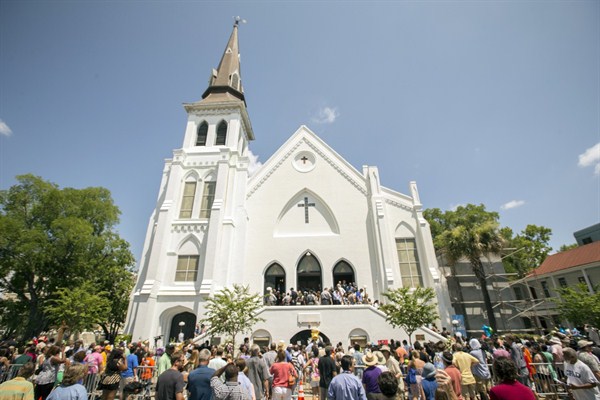There are so many depressing realities underscored by the tragic shooting deaths of nine African-American parishioners in the Emanuel AME Church in Charleston, it’s hard to know where to begin: from the seeming permanence of America’s glaring racial divide to the country’s inability to stanch the unceasing carnage of gun violence that is unlike that of any other country in the world.
But here’s one that will be self-evident to most foreign policy observers: If the gunman in Charleston had been not white, but Arab, and if he had yelled “Allahu akbar,” rather than uttering racist statements, we wouldn’t be talking about taking down the Confederate flag in South Carolina—we’d be talking about which terrorist group or which nation-state should pay the price for this deed. After 9/11, the United States invaded two nations, spent trillions of dollars and reoriented the federal government’s national security footing toward the fight against terrorism. If the Charleston killer had been a jihadi, the reaction might not have reached those proportions, but it would have been significant.
Instead, aside from taking down a symbol of America’s racist past—and present—the policy response to yet another mass shooting in America will more likely than not be no response at all, even though nearly as many Americans will die this month from gun violence than died on 9/11.

